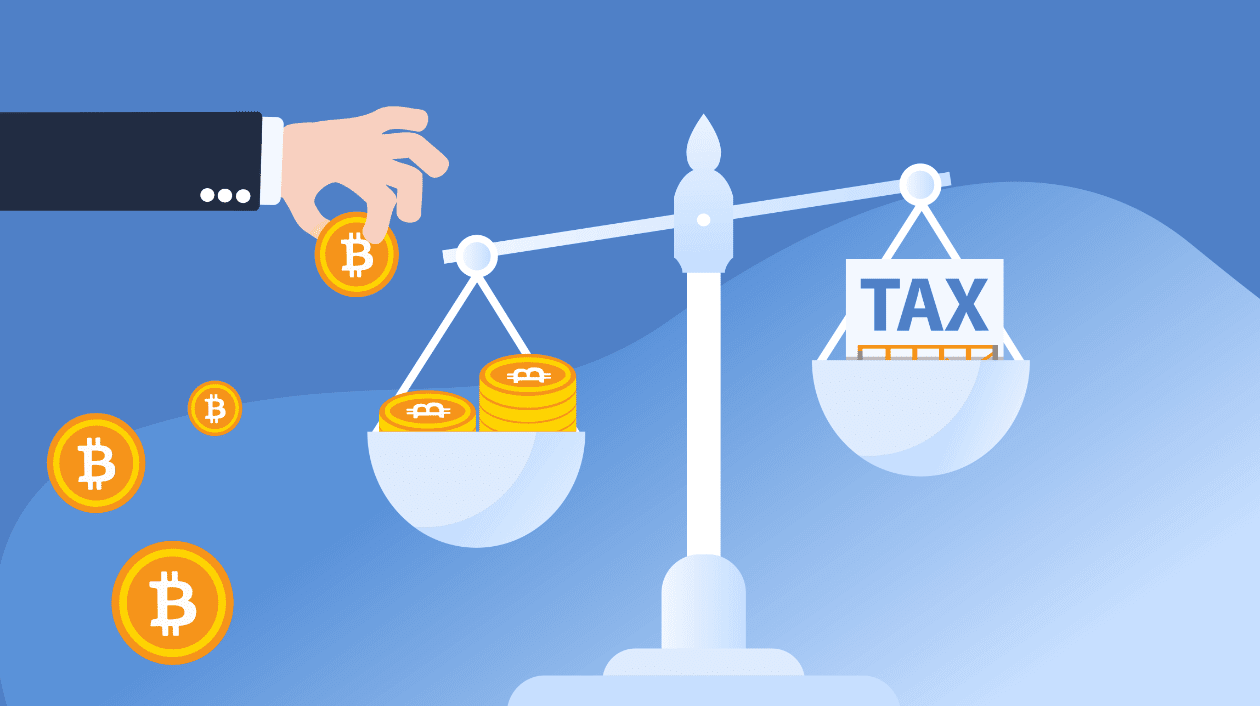Managing cryptocurrency taxes can be overwhelming, especially when dealing with multiple exchanges, wallets, and hundreds of transactions. The right cryptocurrency tax calculator software can transform this complex process into a streamlined experience, saving you hours of manual calculations and ensuring compliance with tax regulations.
As cryptocurrency adoption continues to surge, the IRS has intensified its focus on crypto tax compliance. Every crypto transaction—whether it’s trading, staking, mining, or De Fi activities—creates potential tax obligations. Without proper tracking and calculation tools, crypto investors often face significant challenges during tax season, including inaccurate reporting, missed deductions, and potential penalties. Modern cryptocurrency tax calculator software automates the entire process, from importing transactions across multiple platforms to generating comprehensive tax reports. These sophisticated tools handle complex scenarios like FIFO/LIFO calculations, wash sale rules, and even advanced De Fi protocols, making them indispensable for serious crypto investors.
Why You Need Cryptocurrency Tax Calculator Software
The Complexity of Crypto Taxation
Cryptocurrency taxation involves numerous scenarios that traditional tax software cannot handle. Every time you sell, trade, or use crypto for purchases, you potentially trigger a taxable event. Manual tracking becomes nearly impossible when dealing with:

- Multiple cryptocurrency exchanges and wallets
- Hundreds or thousands of transactions annually
- Complex DeFi protocols and yield farming activities
- Staking rewards and mining income
- NFT transactions and airdrops
The challenge intensifies when considering different cost basis methods, international transactions, and evolving tax regulations. Professional-grade software eliminates these complications by automating calculations and ensuring accuracy.
Benefits of Using Dedicated Tax Software
Specialized cryptocurrency tax calculator software offers several advantages over manual methods or generic tax preparation tools. These platforms provide real-time portfolio tracking, automated transaction import, and sophisticated reporting capabilities that ensure comprehensive compliance.
Users typically save 20-40 hours during tax preparation while achieving greater accuracy in their filings. The software also maintains detailed audit trails, which prove invaluable if the IRS requests documentation of your crypto activities.
Top Cryptocurrency Tax Calculator Software Options
Professional-Grade Solutions
Leading platforms in the cryptocurrency tax space offer comprehensive features designed for both individual investors and professional traders. These solutions typically support hundreds of exchanges, provide multiple cost basis methods, and generate forms ready for tax filing.
CoinTracker stands out for its user-friendly interface and robust API integrations. The platform automatically categorizes transactions and handles complex scenarios like wrapped tokens and liquidity pool interactions. Users appreciate its clean dashboard and comprehensive reporting features.
Koinly excels in international tax compliance, supporting tax regulations from multiple countries. The software’s transaction matching algorithm effectively handles missing purchase data and provides detailed capital gains reports with various cost basis methods.
TaxBit offers enterprise-level features with institutional-grade security. The platform’s advanced portfolio analytics and tax-loss harvesting suggestions make it popular among high-volume traders and investment professionals.
Emerging Market Solutions
Newer entrants in the cryptocurrency tax software market focus on specific niches or offer competitive pricing structures. These platforms often provide innovative features like DeFi protocol integration or specialized mining tax calculations.
Many emerging solutions target specific user segments, such as NFT collectors, DeFi yield farmers, or mining operations. While they may lack the comprehensive feature sets of established players, they often excel in their specialized areas.
Key Features to Look for in Crypto Tax Software
Essential Functionality
When evaluating cryptocurrency tax calculator software, prioritize platforms that offer comprehensive exchange integration, supporting major platforms like Coinbase, Binance, Kraken, and emerging DeFi protocols. The software should handle various transaction types, including trades, transfers, mining, staking, and airdrops.
Accurate cost basis calculations using multiple methods (FIFO, LIFO, HIFO) ensure you can optimize your tax liability while maintaining compliance. Real-time price data integration eliminates manual lookups and ensures accurate fair market value calculations for every transaction.
Advanced Features for Power Users
Sophisticated users require additional functionality beyond basic tax calculations. Look for software that handles wash sale rules, supports multiple portfolios, and provides detailed audit trails for compliance purposes.
Tax-loss harvesting recommendations help optimize your overall tax strategy by identifying opportunities to offset gains with losses. Portfolio performance analytics provide insights into your investment strategy beyond just tax implications. Integration with popular accounting software and the ability to export data in various formats ensures compatibility with your existing financial workflows.
How to Choose the Right Cryptocurrency Tax Calculator Software
Assessing Your Needs
Begin by evaluating your transaction volume, complexity level, and specific use cases. Casual investors with simple buy-and-hold strategies have different requirements than active DeFi participants or mining operations.
Consider your technical comfort level and preference for automation versus manual control. Some platforms offer extensive customization options, while others prioritize simplicity and automated processing.
Pricing and Value Considerations
Cryptocurrency tax software pricing typically follows a tiered structure based on transaction volume or features. Free tiers often support basic needs for small portfolios, while professional plans accommodate high-volume trading and advanced features.
Calculate the potential time savings and accuracy improvements when evaluating cost. The expense of quality tax software often proves minimal compared to the cost of tax preparation services or potential penalties from inaccurate filing.
Security and Privacy Factors
Since crypto tax software requires access to sensitive financial data, security becomes paramount. Look for platforms with robust encryption, two-factor authentication, and clear privacy policies regarding data handling.
Consider whether the platform stores your private keys or transaction data permanently. Some users prefer solutions that process data locally or allow for data deletion after tax season.
Setting Up Your Cryptocurrency Tax Calculator Software
Initial Configuration
Start by connecting your exchanges, wallets, and DeFi protocols to the tax software. Most platforms provide step-by-step guides for popular services, though some may require manual CSV uploads for less common platforms.
Configure your preferred cost basis method and tax jurisdiction settings. These choices significantly impact your tax calculations, so consult with a tax professional if you’re uncertain about the optimal approach.
Data Import and Verification
After importing your transaction data, carefully review the categorization and matching of transactions. Most software automatically categorizes common transaction types, but complex DeFi activities may require manual review.
Pay special attention to missing purchase data, which can significantly impact your cost basis calculations. Many platforms offer tools to estimate missing data or suggest manual entries to complete your transaction history.
Ongoing Maintenance
Establish a routine for regularly updating your transaction data, especially if you’re actively trading. Many platforms offer real-time sync capabilities, but periodic manual reviews ensure accuracy and completeness.
Keep detailed records of any manual adjustments or categorization changes for future reference and potential audit situations.
Common Challenges and Solutions
Handling Complex Transactions
DeFi protocols, wrapped tokens, and liquidity pool interactions create unique challenges for crypto tax software. While modern platforms handle many scenarios automatically, complex strategies may require manual intervention or specialized knowledge.
NFT transactions, particularly those involving fractional ownership or complex marketplace interactions, often need careful review to ensure proper categorization and valuation.
Dealing with Missing Data
Exchange closures, incomplete APIs, or personal record-keeping gaps can create missing transaction data. Most cryptocurrency tax calculator software provides tools for estimating missing purchase prices or flagging incomplete records.
Consider maintaining personal backups of transaction data and regularly exporting records from your exchanges as a precautionary measure.
Integration with Tax Preparation
Working with Tax Professionals
Many tax professionals now specialize in cryptocurrency taxation and can work directly with reports generated by crypto tax software. Provide your tax preparer with comprehensive reports and be prepared to explain complex transactions or strategies.
Some cryptocurrency tax calculator software platforms offer direct integration with popular tax preparation software, streamlining the filing process and reducing manual data entry.
DIY Tax Filing
For straightforward situations, you may be able to use the reports generated by crypto tax software directly in your tax filing. Ensure you understand the tax forms required for your jurisdiction and how your crypto activities should be reported.
Keep detailed documentation of your methodology and calculations in case of future audits or questions from tax authorities.
Future of Cryptocurrency Tax Software
Evolving Regulatory Landscape
Tax regulations for cryptocurrency continue to evolve rapidly, with new guidance frequently issued by tax authorities worldwide. Leading cryptocurrency tax calculator software platforms actively monitor regulatory changes and update their algorithms accordingly.

Stay informed about regulatory developments in your jurisdiction and ensure your chosen software provider maintains current compliance standards.
Technological Developments
Artificial intelligence and machine learning capabilities are increasingly being integrated into crypto tax software, improving transaction categorization accuracy and identifying potential optimization opportunities.
Blockchain analysis and on-chain tracking capabilities continue to advance, providing more comprehensive transaction discovery and analysis tools for users.
Final Thought
Selecting the right cryptocurrency tax calculator software is crucial for accurate tax compliance and peace of mind during tax season. The complexity of cryptocurrency taxation demands specialized tools that can handle diverse transaction types, multiple exchanges, and evolving regulatory requirements.
Whether you’re a casual investor or an active trader, investing in quality crypto tax software pays dividends through time savings, improved accuracy, and comprehensive compliance. Take action today by evaluating your specific needs and exploring the leading cryptocurrency tax calculator software options available for the 2025 tax season. Don’t let crypto tax complexity overwhelm you – the right software solution can transform your tax preparation from a stressful ordeal into a streamlined process.










